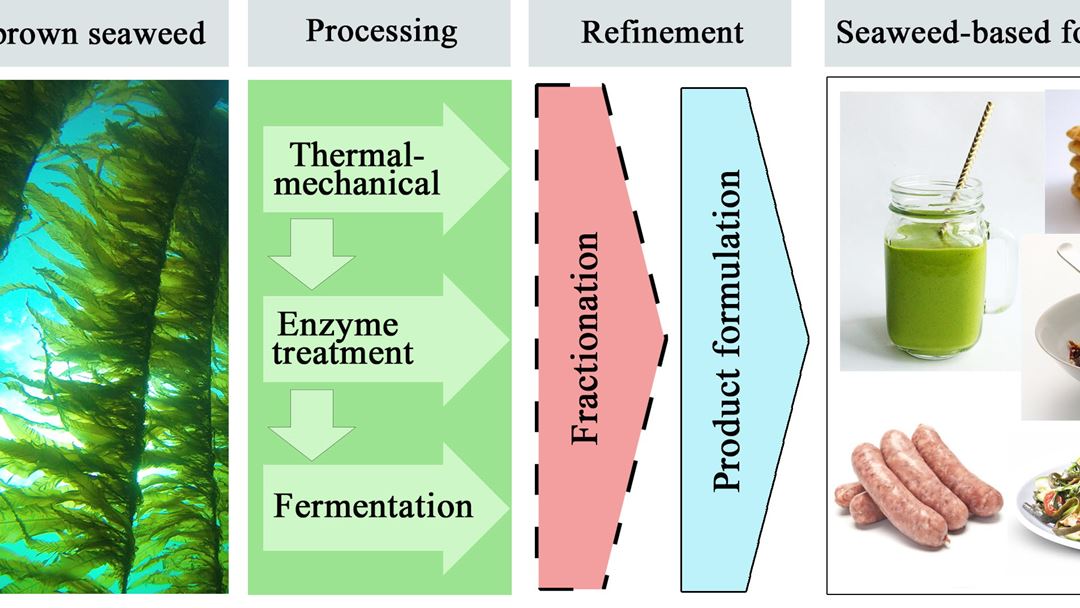Project overview
Agricultural food production faces large technological and environmental challenges to remain sustainable, highlighting a pressing need for utilization of new food sources and alternative production sites. Brown seaweeds are important as food in East Asia, but presently underutilized in the Western world. Large-scale, sustainable cultivation is now increasing the availability of high-quality seaweed biomass in Europe. However, for brown seaweed to become a widespread food ingredient, improved processing methods to increase the edibility and nutritional value of both new and existing products are required.
The primary objective of the "ProSeaFood" project is to apply advanced processing methods to increase the digestibility and nutrient availability of brown seaweeds. This will be achieved through employing enzymes and fermentation to increase nutritional availability and remove inedible or potentially harmful substances, and to introduce novel sensory properties. Based on the processed ingredients, the project will further develop innovative food products that are nutritious, tasteful and have well-documented effects on consumer health. The project consortium includes research institutes and industries from Norway, Sweden, Iceland and Spain, combining expertise in seaweed cultivation, biomass processing, fermentation, enzymology, and product development and quality control, to cover the value chain from raw material to finished food products.

The ProSeaFood project is funded through the SUSFOOD2 ERA-NET CO-FUND.
Information on the co-fund objectives, partner countries and funded projects can be found at http://susfood-db-era.net/main/
Project Coordinator:
Håvard Sletta, Mobil: 915 44 429, Epost:
Granted funding: € 1.134 M €
Duration: 36 months (04/2018 – 03/2021)